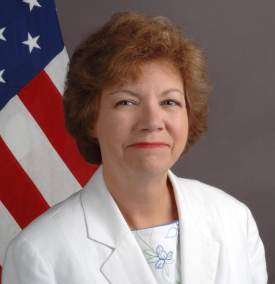Milovanovic: KP Plenary Will Block Attempts to Ban Countries over 'Unrelated' Violence
September 13, 12
 We have a responsibility for the livelihood of the many people involved in the diamond industry, KP chair Ambassador Milovanovic |
A number of KP-member countries are concerned that issues completely unrelated to diamonds – such as border clashes between India and Pakistan, border disputes between China and Japan or cross-border fire between Gaza and Israel – will be grounds for blocking rough trade by key diamond-trading countries.
In an interview with IDEX Online, Milovanovic said, "Decisions are not made by an abstract group, but by the Plenary." (The Plenary is the main annual KP meeting held each November.)
"Most importantly, the definition relates to 'systematic conflict,' where rough diamonds are mined and relates to rough diamonds directly," she emphasizes.
A final suggested definition has yet to be reached. All suggestions for this year's Plenary were submitted in August. At the beginning of October a reforms committee will meet in
The November meeting will also see the
There are a number of observers who feel that the definition itself should be clear, and that this point should not be left open to interpretations at annual meetings. Tightening this wording would work both ways: making it easy to start monitoring and if necessary blocking those in the wrong, and avoiding discussions where diamonds are not the issue, such in the examples above.
Some country representatives speaking on condition of anonymity are concerned that under the current suggestions, if a diamond tycoon finances settlements in the West Bank, for example, or if a country's revenues are largely sourced from diamond mining, such as
Milovanovic seems to reject that notion, stressing that rough diamonds need to be directly related to the particular conflicts in question. "No one wants to create a situation resulting in destabilization," she says, adding that nothing is set yet, and there is "no one way rail track. Change is possible." But what if a change is not accepted at the November meeting? "The issue won't go away," Milovanovic says. "If no consensus is reached, there will be continued efforts in the KP. The other issue is that in the meantime concerns over a consumer product will remain, she says, and countries and other entities will need to deal with that.
"Fundamentally, once you have a negative image, you have to roll it back before you can promote it again," she warns, adding that "it's all fine now, but this is a managerial issue. It requires being managed before the image is harmed."
One issue of importance in this context is that if a new definition is not adopted, some countries may choose to set their own regulations. As chair of KP, representing all member countries, Milovanovic is not expressing an "American" opinion per se. However the option that the U.S., Canada or European Community elect to place stricter laws independently is looming over the countries that are hesitant to see these changes put in place.
When asked about her impressions of the diamond industry nearly a year after getting involved in the sector, she calls it fascinating. "What strikes me the most is how big an industry it is… we have a responsibility for the livelihood of the many people involved in it," she concludes.